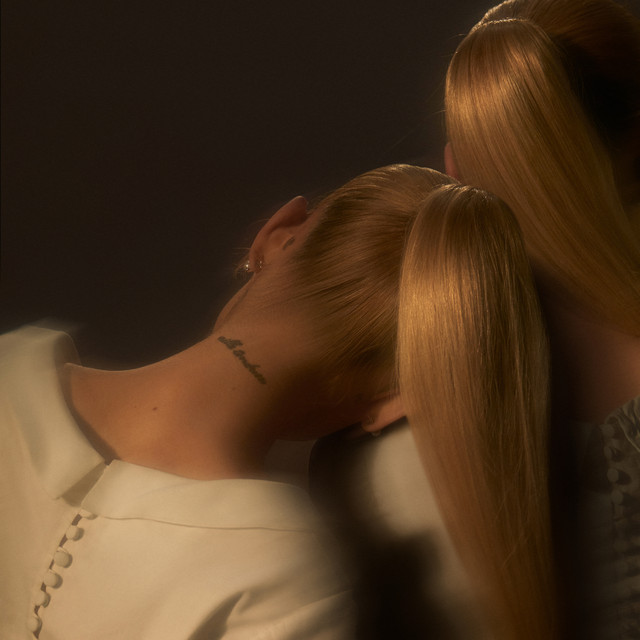By Emma Weidmann | Arts and Life Editor
On her seventh album, “eternal sunshine,” Ariana Grande answers the big questions — just not the ones you’d expect.
Listeners will probably want her to settle the score on the Ethan Slater debacle, but “eternal sunshine” isn’t a tell-all album. In fact, it’s really an album that says, “I do what I want. Yes, and?”
With the opening line, Grande asks, “How can I tell if I’m in the right relationship?” She spends the whole album trying to answer that, looking back and providing a fuzzy window into her life since marrying and divorcing real estate agent Dalton Gomez and being cast as Glinda the Good Witch in “Wicked.”
Good or bad is a consistent theme with the pop star. Grande has been embroiled in controversy for years, from 2015’s Doughnut-Gate to accusations of overzealous spray tan usage. Most recently, Page Six reported that while on the set of “Wicked,” Grande and co-star Ethan Slater cheated on their respective spouses — Slater having been rumored to have left his wife, with whom he had been in a relationship for 10 years, and his 1-year-old child for Grande.
Despite there being no concrete evidence for this, as Page Six later self-corrected, the rumor mill ran amok and took glee in labeling Grande as a homewrecker — a Bad Witch, per se — taking on previously unseen levels of ire and rancor for the pop star.
You might think, then, that “eternal sunshine” would serve as a vessel to put the rumors to rest, to confirm or deny, or at least to set the record somewhat straight. However, Grande dances around any conclusive answer. She doesn’t want to hold her tongue, but she doesn’t want to “feed this monstrous fire,” so she sticks to hints and vague whispers (“we can’t be friends”). She implies infidelity — on Gomez’s part — but “did she really steal that woman’s husband” is one question Grande refuses to answer on the album.
The title track is inspired by the movie “Eternal Sunshine of the Spotless Mind.” This cult classic revolves around a man (Jim Carrey) who elects to have his memories of an ex-girlfriend (Kate Winslet) erased; while undergoing the procedure, he chases her through the depths of his mind to bring her back when he realizes that memories — especially the ones that hurt — are what make up one’s life story. Memory and experience amount to identity, and Grande’s identity on the album is a woman who lugs her baggage into relationships and seeks the healing power of a love that allows her to be perfectly imperfect.
Maybe it’s a flawed notion. On her previous album, “Positions,” Grande wished to see herself from the perspective of her lover (“pov”). She wished to see her flaws as beautiful — the way the lover in the song, presumably Gomez, does — but she can’t. Ultimately, that lens was probably more like rose-colored glasses than real acceptance, as Grande sang on “don’t wanna break up again” that no matter how much therapy she does, her struggles are “too much” for him.
On “the boy is mine,” Grande plays into the bad girl stereotype she’s garnered since the days of “Dangerous Woman.” It’s the type of song that her fans eat up every time, and she slows it down by one beat right before the chorus hits, making for an interesting moment on a song that’s otherwise a pretty straightforward, sexy pop groove.
Grande is a master of melody, and in pop music, melody is money. She hooks the listener with enchanting and easy-to-follow lead vocals (“yes, and?”) but she does something that not many do: playing with lesser-used chords and tempo. On “imperfect for you,” the name of the song is repeated between phrases and works to create a clash within the song of being flawed, but in a way that makes sense and works in favor of the relationship. It’s a clash between harmony and chaos, shown through an unusual vocal step.
Aside from the tension between fact and fiction, chaos and harmony, “eternal sunshine” is a sonically cohesive album — and yet, it is without any songs that sound the same at all, beating out some contemporaries who can’t make the distinction between cohesion and carbon copying.
To vary her sound, she swings between ‘70s disco groove (“bye”) and ‘90s diva glamour (“true story”), between The Bee Gees’ “Night Fever” and Destiny’s Child’s “Say My Name.” Because of this, Grande manages to create something that makes sense as a whole without becoming one long mega-track.
She closes out the album with “ordinary things,” containing a voice memo on which “Nonna” Grande says one can overcome fighting in a relationship, but the worst thing they can do is go to bed without a kiss goodnight. If you can, she says, “You’re in the wrong place. Get out.” So, there it is — the answer to Grande’s original question, and the only answer listeners are going to get from this album.
“eternal sunshine” is far from an open-shut case, and Grande refuses to lend credibility to the rumor mill, going so far as to present fake stories as true in a way similar to the tabloid stories published about her. The track “true story,” she said, is actually a work of fiction, leaving the listener to question what they’re hearing from her, to question the narratives on social media and splashed across the magazines in the grocery checkout line.






